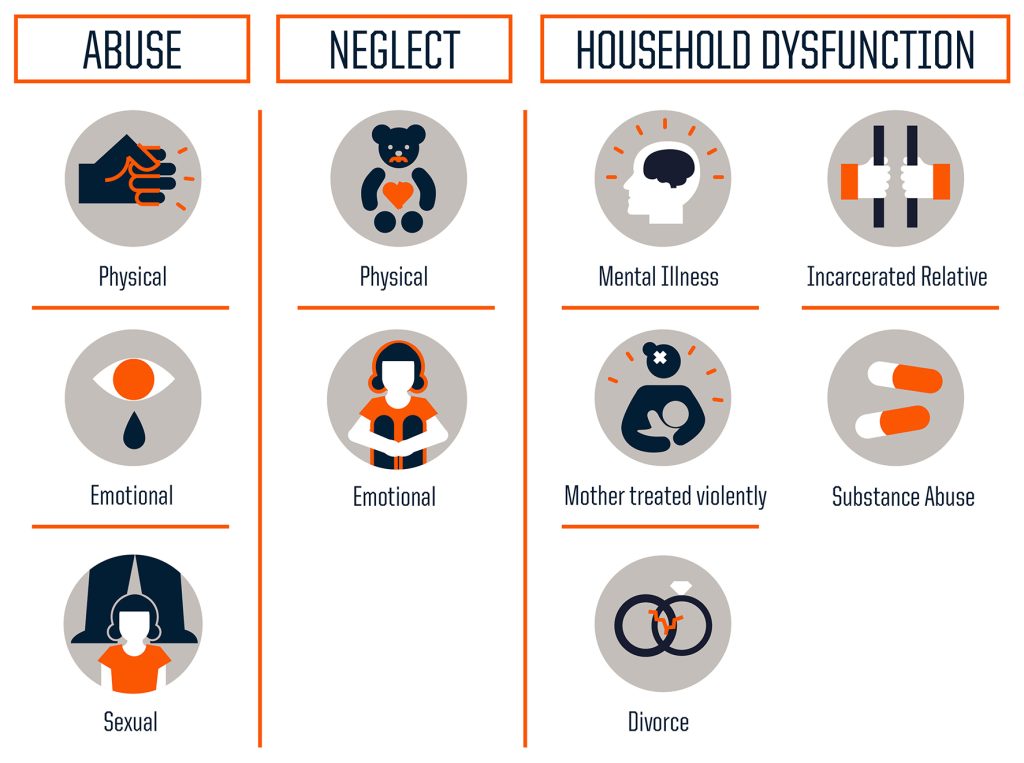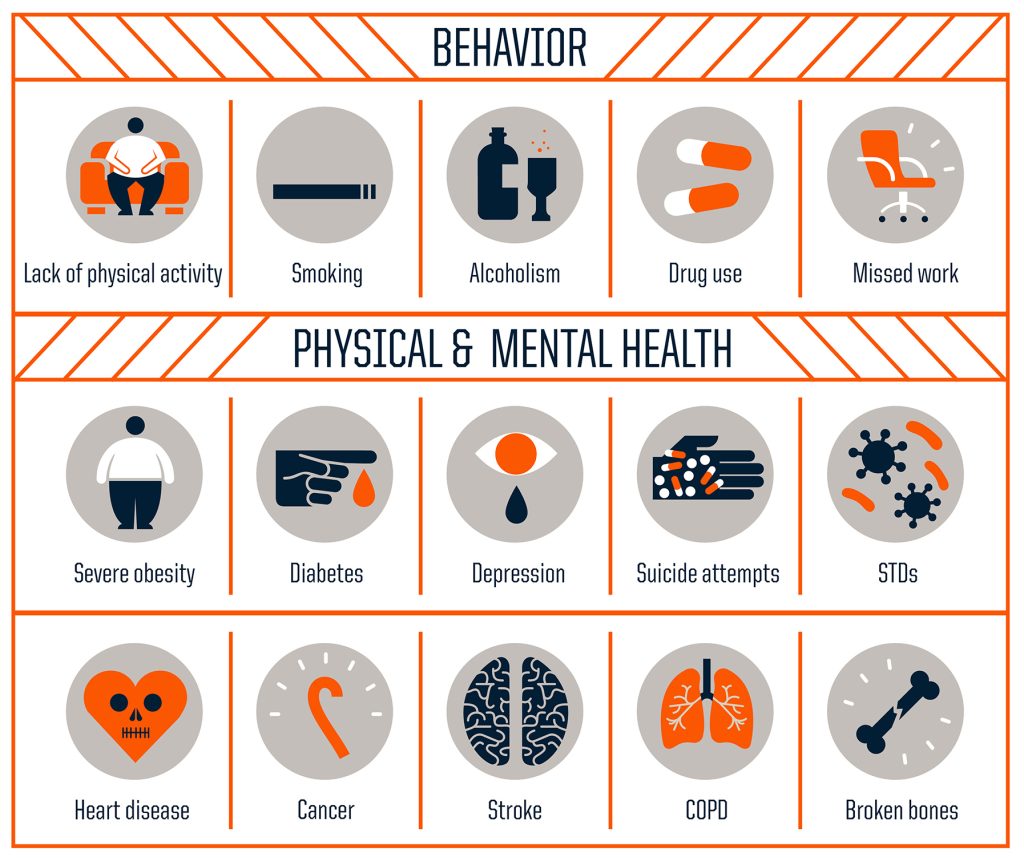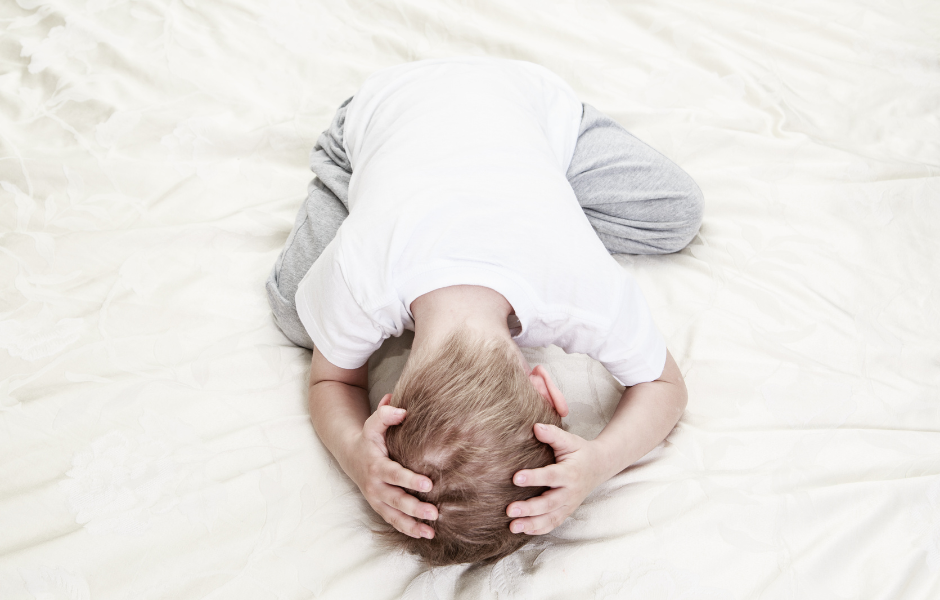In the mid-1990s researchers with the Centers for Disease Control and Kaiser Permanente were looking at the impact of trauma in childhood on adult health. As part of the study, more than 17,000 adults were asked about maltreatment and family dysfunction during their childhood and their current health and behaviors.
Reportedly, when the results came in the researchers were stunned. Adverse Childhood Experiences (ACEs), or potentially traumatic events between the ages of 0 and 17, were far more common than anyone had anticipated. Out of the 17,421 participants, about two-thirds reported having had at least one ACE during their childhood, and about 12% reported having experienced four or more. The results were especially telling because the survey pool was limited to mainly white, middle-class respondents not dealing with stressors like poverty or discrimination.
The researchers were also surprised that this one study could so clearly establish a direct link between early trauma and adult onset of chronic disease, as well as mental illness, incarceration, and employment problems. According to the study, individuals with four or more ACEs were twice as likely to smoke, seven times more likely to have a problem with alcohol and 12 times more likely to have attempted suicide. More than half of those with four or more ACEs reported having had learning and behavioral problems in school. They were six times as likely to have had sex before the age of 15 and twice as likely to have cancer or heart disease. Men with six or more ACEs were 46 times more likely to have injected drugs than men with no history of trauma.
These findings were so significant that they inspired two decades of work by scientists, medical and mental health professionals, neurologists, public health teams, social service agencies and educators focused on learning more about ACEs and how to support and help those who have been impacted by ACEs. They also lead to the development of trauma-informed care models and ACE prevention initiatives.
ACEs
Generally, ACEs fall under three main categories and include 10 types of trauma.

Researchers acknowledge that these categories fail to take into account other significant sources of stress and trauma outside the home including poverty, racism and discrimination, violence, natural disasters, a chaotic environment, lack of services, etc. that can affect a child’s wellbeing.
Impact

When a child grows up in dysfunction and chaos and is continually exposed to trauma, violence or neglect over an extended period of time, without appropriate support from a caregiver, they experience toxic stress. This is when the body is in constant fight or flight mode, unable to turn off the stress response normally. Over time, the excessive activation of the stress response system can lead to wear and tear on the body and brain, effecting behaviors and health.
This video provides an overview of what happens to the brain as children experience the toxic stress associated with Adverse Childhood Experiences.
The ACE Quiz
Even today, healthcare providers and mental health clinicians will often ask patients who are struggling with a variety of issues, questions from the original ACE survey to get a sense of whether their problems may be rooted in early trauma. The ACE Quiz is a helpful tool for starting an important conversation. One ACE point is given for each “yes” response in the survey. Four or more ACEs may indicate significant childhood trauma.
Keep in mind, there are many experiences that could be traumatic for children that the quiz doesn’t ask about. Also, it should be noted that everyone is different, and adverse experiences in childhood affect each child differently.
10 questions
- Did a parent or other adult in the household often or very often… Swear at you, insult you, put you down, or humiliate you? or Act in a way that made you afraid that you might be physically hurt?
- Did a parent or other adult in the household often or very often… Push, grab, slap, or throw something at you? or Ever hit you so hard that you had marks or were injured?
- Did an adult or person at least 5 years older than you ever… Touch or fondle you or have you touch their body in a sexual way? or Attempt or actually have oral, anal, or vaginal intercourse with you?
- Did you often or very often feel that … No one in your family loved you or thought you were important or special? or Your family didn’t look out for each other, feel close to each other, or support each other?
- Did you often or very often feel that … You didn’t have enough to eat, had to wear dirty clothes, and had no one to protect you? or Your parents were too drunk or high to take care of you or take you to the doctor if you needed it?
- Were your parents ever separated or divorced?
- Was your mother or stepmother: Often or very often pushed, grabbed, slapped, or had something thrown at her? or Sometimes, often, or very often kicked, bitten, hit with a fist, or hit with something hard? or Ever repeatedly hit over at least a few minutes or threatened with a gun or knife?
- Did you live with anyone who was a problem drinker or alcoholic, or who used street drugs?
- Was a household member depressed or mentally ill, or did a household member attempt suicide?
- Did a household member go to prison?

